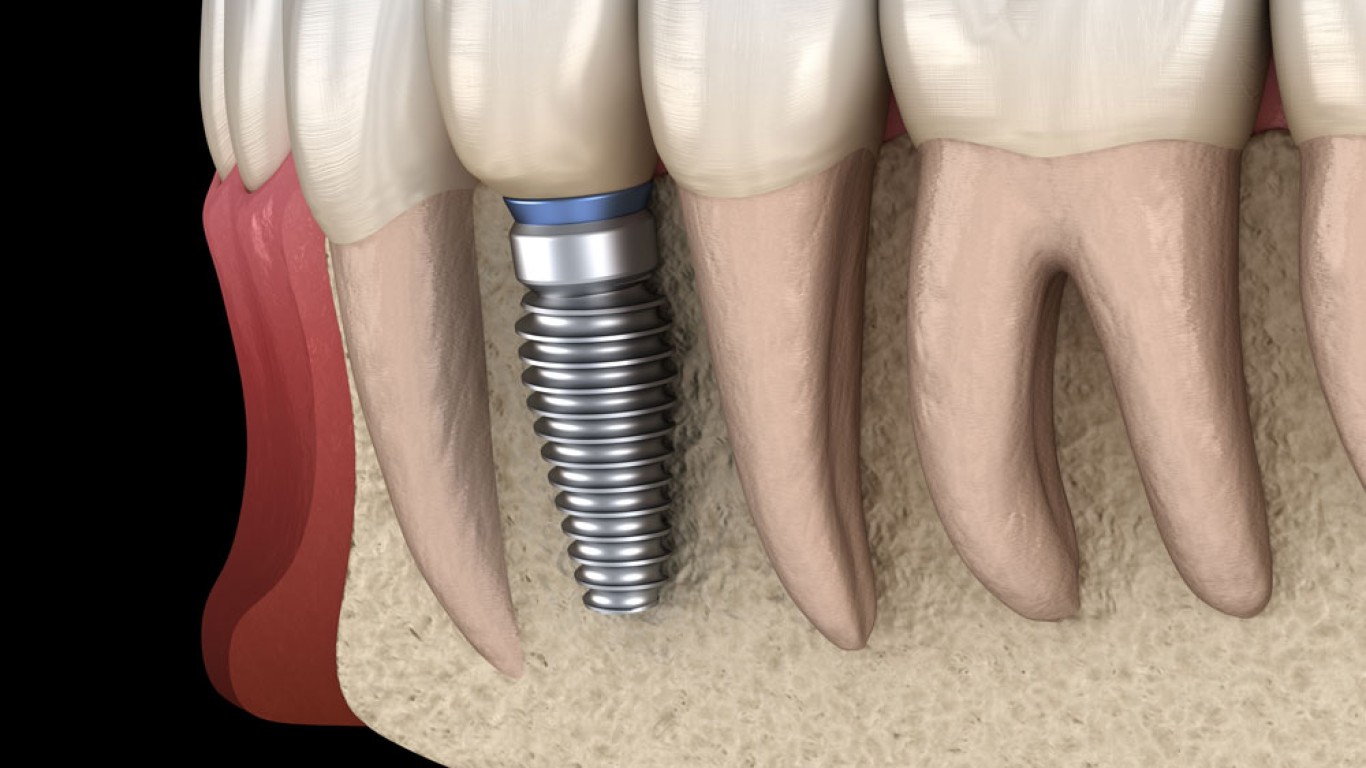Introduction
Dental implants are a long-term solution for missing or damaged teeth. They restore function, prevent bone loss, and improve confidence. However, many patients ask the same question—when is the best time to get dental implants? Timing depends on several factors including age, oral health, bone density, and recovery needs. Additionally, choosing the right moment can improve healing and ensure long-term success. This article explores ideal timing for dental implants and what you should consider before scheduling your procedure.
What Are Dental Implants?
Dental implants are artificial tooth roots made from titanium. They’re placed into the jawbone and serve as anchors for replacement teeth. Implants support crowns, bridges, or dentures and look and function like natural teeth. Additionally, they stimulate the jawbone, preventing bone loss. Unlike removable options, implants are fixed and durable. With proper care, they can last a lifetime. Dental implants are a popular choice because they offer stability, comfort, and a natural appearance.
Why Dental Implant Timing Matters
Choosing the right time for dental implants isn’t just about convenience—it affects outcomes. Early intervention after tooth loss helps prevent bone shrinkage. Additionally, timely treatment preserves facial structure and maintains healthy alignment. Waiting too long may require additional procedures like bone grafting. Moreover, planning implant surgery when you’re in good health supports faster healing. Whether you’ve just lost a tooth or are planning extractions, timing plays a major role in implant success.
Getting Dental Implants Immediately After Tooth Loss
One of the best times to get dental implants is shortly after losing a tooth. Acting quickly reduces the risk of bone loss, which starts within weeks of tooth removal. Additionally, placing implants soon after extraction can sometimes be done in the same appointment. This is called immediate placement. However, not all patients qualify. Your surgeon will assess the bone and gum condition. If suitable, early placement offers quicker treatment and a shorter overall timeline to tooth replacement.
Three to Six Months Post-Extraction
In some cases, dental professionals recommend waiting a few months after extraction before placing implants. This allows the gum and bone to heal properly. Additionally, if an infection was present, this healing time helps ensure a stable foundation. The bone becomes stronger and more capable of supporting an implant. This delayed placement strategy may involve temporary tooth replacements until implants are placed. Overall, it’s a strategic choice to balance healing with long-term results.

Getting Dental Implants After Bone Grafting
If bone loss has occurred, bone grafting may be required before implants can be placed. Grafting helps restore bone density and volume in the jaw. After this procedure, you typically need to wait three to six months before implant placement. Additionally, grafts must fully integrate with your natural bone for best results. While this adds time to your treatment, it significantly increases the chance of success. Grafting ensures implants have a solid foundation to anchor into.
Getting Dental Implants When Oral Health Is Stable
Healthy gums and good oral hygiene are essential before getting dental implants. Infections like periodontitis must be treated first. Additionally, smokers may be asked to quit or reduce usage before surgery. Stabilising your oral health helps reduce risks and improves healing. Are you prone to gum problems or decay? Your dentist may delay implants until these issues are under control. Addressing oral health concerns is an investment in the long-term success of your implants.
Dental Implants Based on Age and Growth
Age plays a role in timing dental implant placement. For younger patients, it’s crucial to wait until jaw growth is complete. Placing implants too early may lead to alignment issues later. This usually occurs around 18 for women and 21 for men, but can vary. Additionally, older patients can benefit from implants at any age if they’re in good health. There is no upper age limit. As long as bone quality is sufficient, implants remain an excellent option.
Planning Around Life Events or Travel
Personal schedules also affect the best time to get dental implants. If you’re planning travel or major life events, schedule surgery during a quieter period. Recovery takes several days to a few weeks depending on your procedure. Additionally, follow-up visits are required. Ensuring you’re available and stress-free improves healing. Many patients choose to undergo treatment during holiday breaks or less busy seasons. Planning around your calendar supports a smooth, well-managed recovery.
When You’re Mentally and Financially Prepared
Dental implant surgery is a commitment that involves time, planning, and investment. It’s important to be mentally ready and financially prepared before proceeding. Additionally, explore payment plans or package offers if available. Some clinics provide step-by-step support including consultation, imaging, surgery, and follow-ups. Being prepared removes anxiety and improves the overall experience. When your mindset and budget align, it’s a sign that you’re ready to move forward confidently with treatment.
Dental Implants Following Failed Restorations
Have you had bridges or dentures that no longer function well? It may be the right time to switch to implants. Failed restorations often lead to discomfort, poor fit, or frequent repairs. Additionally, they may not prevent bone loss over time. Implants offer a more stable, long-term solution. Your dentist will assess your current restoration and recommend the right time to transition. Early action can preserve oral health and restore confidence in your smile.
Dental Implants After Completing Other Dental Work
Sometimes, other dental treatments must be completed before implant surgery. This includes fillings, root canals, or orthodontic adjustments. Additionally, tooth alignment affects implant positioning. It’s best to complete essential work first, so implants are placed in the ideal location. This ensures long-term comfort, appearance, and bite balance. Once these procedures are done, your dentist will guide you on proceeding with implants. Coordinating care leads to better overall results.
Conclusion
In conclusion, the best time to get dental implants depends on your unique situation. Acting soon after tooth loss can preserve bone and speed up treatment. Alternatively, some patients benefit from waiting after healing, bone grafts, or dental work. Additionally, your overall health, lifestyle, and schedule should support recovery. Consulting with an experienced implant specialist helps determine the perfect timing. With the right plan, dental implants offer a lifetime of comfort, function, and natural beauty.
For more information and to book a consultation visit the ACIBADEM Beauty Center Dental Implant page.
Frequently Asked Questions
Yes. Patients must wait until jaw growth is complete—usually around 18 to 21 years of age.
In many cases, yes. If the bone is healthy, immediate placement may be possible during the same visit.
You may experience bone loss, which can be corrected with grafting before implant placement.
Yes. Age is not a limitation. As long as you're healthy, implants are a reliable solution at any age.
A dental evaluation, X-rays, and a health review will confirm if you're a suitable candidate for treatment.














